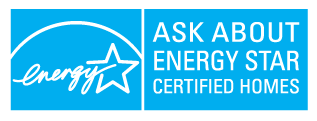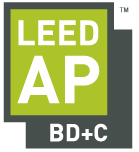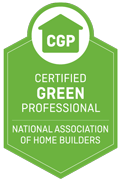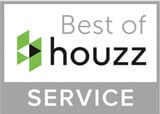What goes into the price of a home?
One of the reasons I like Open Book is the complete transparency contractors share with their clients. If you are contemplating an Open Book (also known as Cost Plus) agreement, these are types of costs you should see in the budget.

As you can see in the pie chart (yes, pie always improves discussions), there are five major components to a project budget: Direct Costs, Indirect Costs, Site Work, Builder's Operating Expense, and Builder’s Gross Profit.
- Direct Costs are the easiest to understand since they are the materials and trade-labor that go directly into your home. You can usually see and touch these items like framing, plumbing, HVAC, wiring, and the like.
- Indirect Costs are those items that are necessary for the job but are not directly installed into your home. Some examples may be the builder’s supervisory labor to manage the day-to-day activity, or the cell phone the supervisor uses, and even the pickup and fuel used by the supervisor. You may also see items such as insurance, trash haul-off, portable bathrooms, and temporary utilities to name just a few common examples. Other things like plan printing, job signage, and cleanup are also indirect costs.
- Site Work is entirely dependent on the lot you pick. A flat, simple lot in a subdivision often requires little extra. But a steep or rocky lot generally requires more excavation work and often additional engineering. Sometimes, utilities need to be brought to the lot, maybe a septic tank or water well is needed. Sometimes soil needs to be imported, or exported, and sometimes retaining walls are needed. Occassionally, the site may have poor soil that requires additional work per the Geotechnical Engineer’s report.
- Builder’s Operating Expenses are costs needed for the builder to operate. Items such as licensing, equipment, training, supervision, bidding, estimating, purchasing, accounting, administrative functions, office space and other “overhead” types of expenses.
- Builder’s Profit is what is needed to operate a good solvent company.
In addition to the direct costs, indirect costs, and site work costs, most Open Book contractors include a management fee with their price to capture the builder’s operating expenses and profit. See our article on Open Book agreements for more information on this type of contract.
DON’T TRUST YOUR DREAMS TO JUST ANYONE.
You should feel confident and excited during your home-building process. After all, the builder you choose could mean the difference between a project that's done right, on time, and on budget and one that costs too much, takes too long, and is fraught with quality problems.
But with every builder claiming to be qualified, how can you be sure you’re picking the right one?
Download What You Need to Know Before Hiring a Home Builder, written by Choice Builders’ owner, Roger Thomas. This guide will help you choose a builder who is right for you.
In it, you'll find answers to questions like:
- How do I make sure a contractor can build to my budget?
- Why do some contractors appear to cost more than others do?
- Should I ask for a “free” estimate?
- How do I choose a good contractor, let alone the best one?
- How should I compare prospective contractors?
With this download request, you are giving Choice Builders permission to email you information about building a home.









.png)

